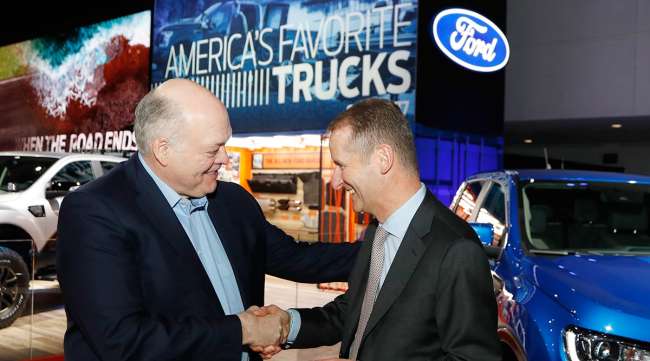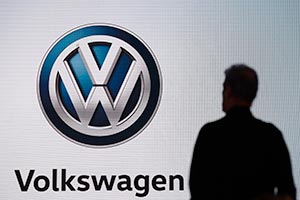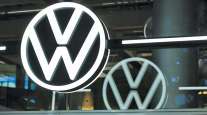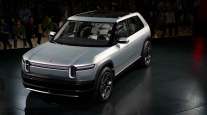VW, Ford Join to Build Pickup Trucks, Explore Work on Autonomous Vehicles

Volkswagen AG and Ford Motor Co. will join forces to build pickup trucks, delivery vans and possibly more, pledging to put old rivalries aside and work together to confront a rapidly changing auto industry.
The pair is set to start delivering medium-sized pickup trucks from 2022, VW and Ford said in a statement Jan. 15. The partners are also holding talks for joint work on electric cars, autonomous vehicles and digital services.
“Volkswagen and Ford will harness our collective resources, innovation capabilities and complementary market positions,” VW CEO Herbert Diess said. “The alliance will be a cornerstone for our drive to improve competitiveness.”
The collaboration on vans and possibly other areas shows how carmakers are pooling resources to better compete with tech giants like Alphabet Inc.’s Google. They are plotting inroads as digital services undermine traditional business models. The partnership will help cut development costs and optimize factory capacity, Volkswagen said.

Jae C. Hong/Associated Press
The tie-in on commercial vans and pickups will improve operating results from 2023, the partners said.
The auto giants may have more to discuss. VW, the world’s largest automaker, has long struggled to grow its main namesake brand beyond niche status in North America, despite successfully conquering key markets like China. Last year, the U.S. accounted for just 5.7% of sales of the unit. Likewise, Ford’s losses in Europe and sliding market share last week prompted the Dearborn, Mich.-based manufacturer to map out thousands of job cuts in Europe.
To stay ahead in the sector’s generational shift, Volkswagen has allocated a record $50 billion (44 billion euros) over the next five years, seeking to use engineering prowess and scale to halt the expansion of new rivals like Tesla Inc. VW will spend $800 million to expand its only U.S. vehicle assembly site in Tennessee to produce electric cars for North American buyers as of 2022.
Ford has started an $11 billion restructuring and earmarked a combined $15 billion in investment toward electrified and driverless cars in the coming years.
It’s not the first time VW and Ford team up, with executives from both sides touting past projects like joint ventures in South America and Portugal. Under Diess, who took over as CEO last year, VW has pledged to change an often insular culture and become more open to working with other companies.
The manufacturer’s last major alliance with Suzuki Motor Corp. ended in a London arbitration court before the first joint vehicle was built. Joint work between major global manufacturers is often beset by problems that stem from cultural differences and highly complex supply lines and production plans.




